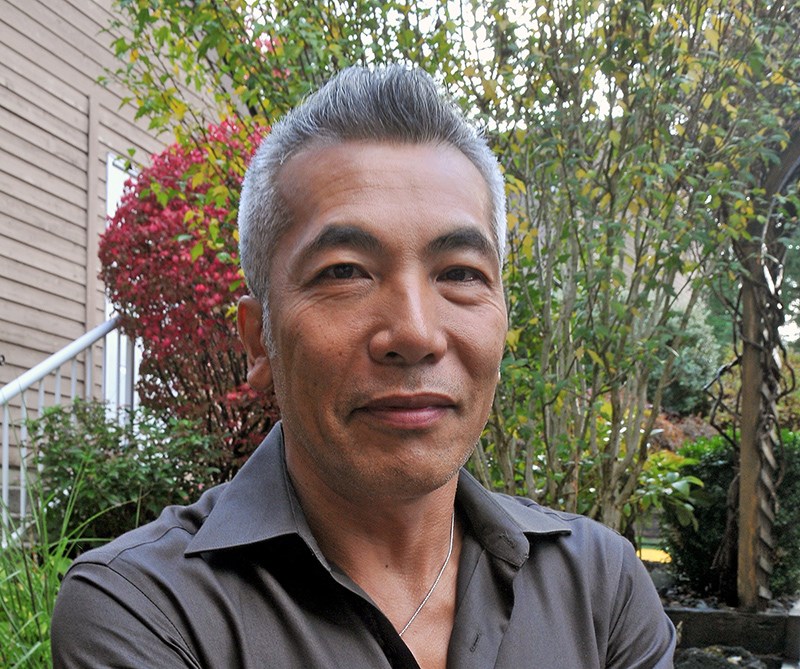When Stephen Drover asked Hiro Kanagawa to write an adaptation of Ibsen’s Little Eyolf — one of Drover’s favourite plays — the Port Moody playwright didn’t know what to think.
Drover, the artistic director of Rumble Theatre in Vancouver, had previously worked with Kanagawa to direct his show, The Patron Saint of Stanley Park, for the Arts Club Theatre.
But three years on, Drover wanted something from Kanagawa for his own company to produce.
Kanagawa spent the next two years crafting a script based on Little Eyolf; however, instead of setting it in 19th century Norway, he used his backyard to unfold the scenes.
And rather than creating tension between a couple grieving over the loss of their disabled son, Kanagawa positioned his narrative around land ownership on First Nations territory.
The play, titled Indian Arm, was well-received when Rumble Theatre mounted it in April 2015.
And, this month, it was named a Governor General’s Literary Award finalist in the drama category (after it was published last year), competing against Michael Healey’s 1979, Robert Chafe’s The Colony of Unrequited Dreams, Kate Hennig’s The Virgin Trial and Anna Chatterton’s Within the Glass. The winner will be named on Nov. 1 and receive $25,000 (non-winning finalists get $1,000).
“I’m thrilled by the Governor General’s nomination,” Kanagawa told The Tri-City News last Friday from his home. “It’s a terrific honour to be recognized by the community of my peers.”
The nod for his playwriting skills comes after nearly 30 years in the performing and visual arts field.
A native of Sapporo, Japan, Kanagawa was three when his family moved to Canada. At the time, his father was studying post-doctoral research in veterinarian medicine at the University of Guelph. Eleven years later, the family was back in Japan but Kanagawa returned to North America to pursue his undergraduate degree in sculpture at the prestigious Middlebury College in New England.
By then, Kanagawa was doing more performance projects in acting and music but continued his graduate studies in the U.S. in sculpting. He withdrew after becoming “disenchanted” with the direction of visual arts at the time and enrolled in a new master’s program at SFU.
It was during his interdisciplinary studies at SFU that he penned his first full-length play, focusing on racism on campus, and the nexus between politics and private life became a theme for his future plays (The Patron Saint of Stanley Park earned him a 2011 Jessie Richardson Award for Outstanding New Script and was later remounted by the Arts Club Theatre).
Soon, Kanagawa was gaining more work in Vancouver’s film and television industry and he landed roles in Highlander, The X-Files, Smallville and, most recently, iZombie (as Lt. Suzuki).
He also dipped his hand into screenwriting for such programs as the Da Vinci Inquest series. Now, he’s working on programs for Netflix and TNT, and writing TV pilots.
Asked if he will turn Indian Arm into a screenplay one day, Kanagawa is hesitant: The stage is a different medium than television and film, he explains, and may be difficult to interpret.
Still, with so much attention from the Governor General’s award nomination, he’s eager to see the play remounted.
Indian Arm has the blessing from Leonard George, an elder with the Tsleil-Waututh Nation who is the youngest son of the late Chief Dan and Amy George, and Kanagawa would like to see his story — and the discussion about reconciliation — continue.
“If we are going to reconcile the two cultures,” he said of Western and First Nations society, “how do we do that? In Western culture, everything is owned but Indigenous people consider the land and nature shared. There has to be understanding before we move forward.”



